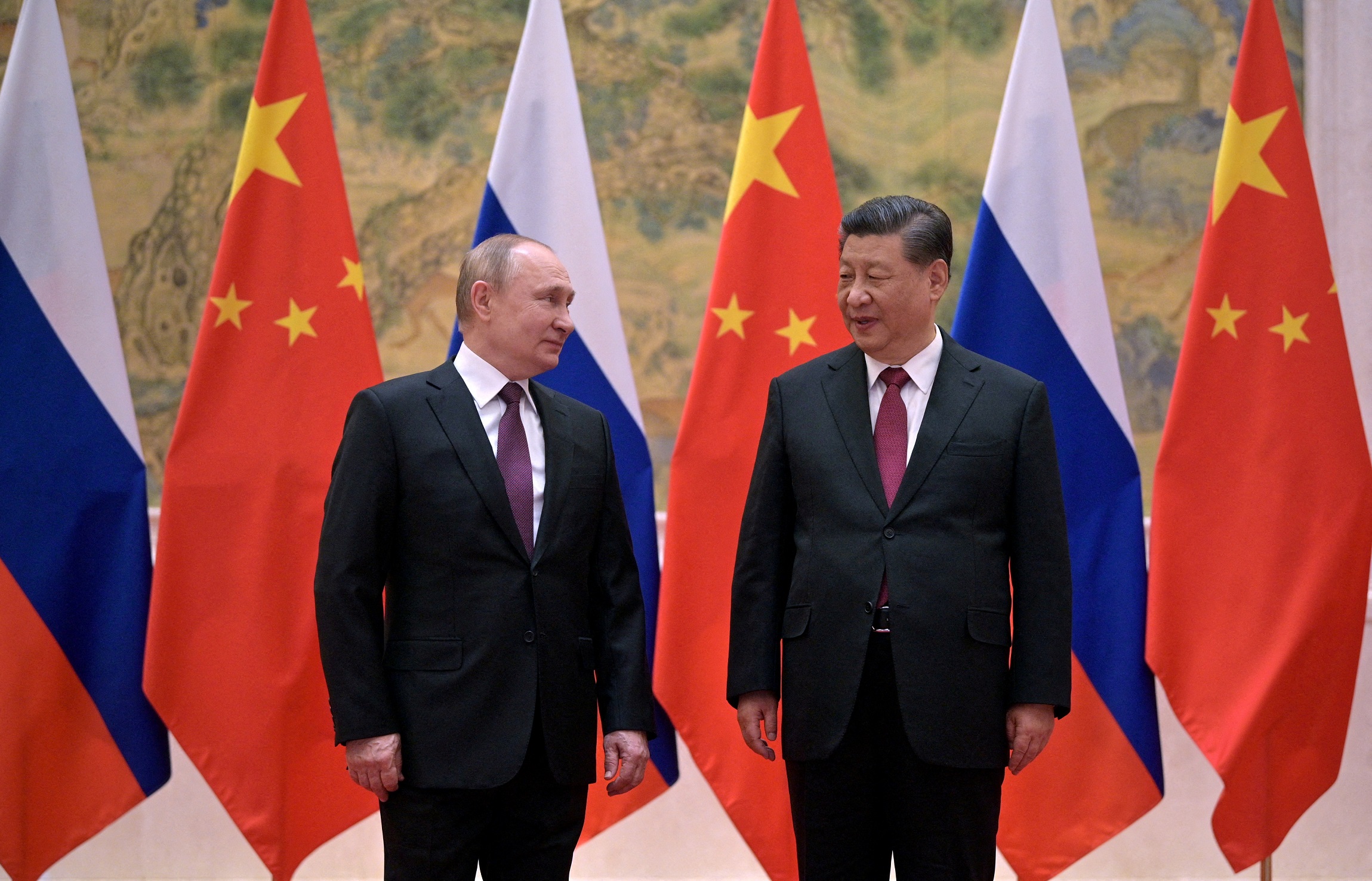Publications
INSS Insight No. 1645, September 20, 2022
For Israel, warming relations with China has, in large part, been driven by pragmatic and enticing economic prospects, with policies focused on seizing the economic opportunity. For Xi and the Chinese Communist Party, the rationale for strengthening relations with Israel has been equally pragmatic, if of a different nature. China has long sought access to Israel’s vaunted innovation and technology sector – one of the most advanced in the world. For these reasons, China-Israel relations have accelerated dramatically, in areas ranging from trade in goods, to investment deals, to diplomatic relations, and beyond. However, over the last few years, and partly in response to mounting US pressure on Israel to reconsider its relations with China, there has been a noticeable cooling of economic activity between the two countries. That being said, if Israel wants to solidify its relationship with the US while limiting the gateways China could conceivably use to access or acquire the country’s technology and innovation in certain dual-use domains, it must also ensure the country’s research, intellectual property, and expert knowledge in these areas is sufficiently protected.
On January 24, 2022, Chinese President Xi Jinping exchanged celebratory messages with Israeli President Isaac Herzog, commemorating the 30th anniversary of the two countries establishing diplomatic ties. In an official statement released by China’s Ministry of Foreign Affairs, President Xi noted that relations between the two countries have “deepened day by day,” and he is eager to “enhance political mutual trust, deepen win-win cooperation, expand cultural and people-to-people exchanges, and promote the stable development of [the] China-Israel innovative comprehensive partnership.” Indeed, Xi is right – relations between China and Israel have gradually deepened over the last two decades across a wide range of fields.
For Israel, warming relations with China has, in large part, been driven by pragmatic and enticing economic prospects, and as Assaf Orion and Shira Efron noted in July 2022, Israel’s policies toward China have been about “seizing the economic opportunity.” For Xi and the Chinese Communist Party (CCP), the rationale for strengthening relations with Israel is equally pragmatic: China has wanted access to Israel’s vaunted innovation and technology sector – one of the most advanced in the world. For these reasons, the mutual realization emerged that a closer partnership would be a win-win in many respects. Consequently, China-Israel relations have accelerated dramatically, in areas ranging from trade in goods, to investment deals, to diplomatic relations, and beyond.
That said, over the last few years, and partly in response to mounting US pressure on Israel to reconsider its relationship with China, there has been a noticeable cooling of economic activities between the two countries, and “the honeymoon in relations between Israel and China is over.” In fact, the dynamic appears to be changing so much so that the Chinese government reportedly stated, “if Israel hurts China because of external pressure, it will be making the wrong policy decision.” Predictably, Jerusalem has been listening to the US – heeding the call to tread carefully when it comes to working with China. For instance, in 2019, at Washington’s behest, Israel created an investment-screening body to increase scrutiny of certain inward foreign investments. Then, in 2020, the Israeli government committed not to use Chinese technology to build the country’s 5G telecommunications network, and prevented Hong Kong-based Hutchison Water from landing a contract to build a second major desalination plant in central Israel. Further, in January 2022, a business group including two Chinese companies – China Railway Construction Corp. and CRRC Corp. – was “disqualified from bidding to construct two new lines on the Tel Aviv light rail.” Most recently, on July 13, 2022, Israel and the US sent a clear signal to China by releasing a joint statement regarding a new strategic technology dialogue, including on trusted tech ecosystems. These measures, including government statements and other examples, underscore that Jerusalem is taking Washington’s concerns seriously.

Yet when it comes to safeguarding sensitive research – a foundational area that underpins Israeli technology and innovation – little is publicly known in terms of what steps Jerusalem might be taking to better protect itself. If Israel wants to solidify its relationship with the US while limiting the gateways China could conceivably use to access or acquire the country’s technology and innovation in certain dual-use domains, it must also ensure that its research, intellectual property (IP), and expert knowledge in these areas is sufficiently protected.
While research and analysis on Israel’s academic partnerships and agreements with China or China-linked entities remains a relatively nascent topic, it is well known that overall, China-Israel collaboration in key academic areas has blossomed. To start, every Israeli university has partnerships with Chinese universities, and there are investments and collaboration agreements. For instance, in 2013, the Technion Israel Institute of Technology received a $130 million grant from the Li Ka Shing Foundation to establish the Technion Guangdong Institute of Technology alongside Shantou University, in Guangdong Province. Then, in 2014, it was reported that Tel Aviv University partnered with Beijing’s Tsinghua University to invest $300 million for the establishment of the XIN Research Center – a center designed to “research early-stage and mature technologies in biotech, solar energy, water and environmental technologies.” Further, in 2016, Israel and China signed seven academic cooperation agreements with Chinese universities – including the establishment of joint Israeli-Chinese study institutes, as well as funding for student and faculty exchange programs. Similarly, in March 2017, Hangzhou Wahaha Group, the Institute of Automation at the Chinese Academy of Sciences, and the University of Haifa signed a $10 million deal to construct three Israeli-Chinese artificial intelligence technology hubs in Haifa, Hangzhou, and Beijing. Moreover, in 2019, the China-Israel Innovation Hub in Putuo District, China was officially opened with a view to strengthen scientific and technological cooperation between the two countries. Despite these and other examples of China-Israel partnerships in fields with potential dual-use capability, or in fields that could benefit China’s pursuit of civil-military fusion, little is publicly available on whether Israel has faced any substantial research loss at the hands of the CCP. Certainly, this could be a case of “dogs that don’t bark,” but China’s track record around the world suggests otherwise.
For decades, the CCP has prioritized the theft and access of sensitive information, technology, and knowledge from research communities around the world. From opaque academic recruitment efforts, consenting research partnerships, large-scale investments into academic institutions, covert espionage operations, cyber intrusions, and other tactics, China has developed a wide-ranging toolkit of licit and illicit activities to support its tech transfer ambitions throughout international research communities. By one estimate, “China has spent two trillion dollars in the past decade, more than its military budget—to subsidize salaries, startup costs, and living expenses for scholars who might seed domestic programs with the newest techniques.” It should come as no surprise, then, that Christopher Wray, Director of the FBI, alongside his MI5 counterpart, Director General Ken McCallum, made a joint address in July 2022 noting their “massive” shared challenge: China. Wray and McCallum specifically mentioned China’s effort to “exploit research” around the world in an attempt to “boost its success” in key technological areas.
Cases like that of Dr. Charles Lieber, the former Harvard professor who was convicted in 2021 for hiding his affiliation with China’s Thousand Talents Program and the Wuhan University of Technology, or former University of Kansas professor Franklin Tao, who was convicted of similar charges in 2022, highlight the challenge US authorities and academics have faced. However, other key allies of Israel have encountered similar issues. For instance, in 2021, it was reported that two scientists fired from Canada's only Level 4 lab may have been working on behalf of the CCP. In Germany, a political scientist working for the Munich-based Hanns Seidel Foundation was charged with spying for China. Elsewhere, such as in the United Kingdom and Australia, the threat of Chinese knowledge theft is equally pervasive. As highlighted in a 2018 report by the Australian Strategic Policy Institute, “approximately 500 Chinese military scientists were sent to each of the UK and the US, roughly 300 each to Australia and Canada and more than 100 each to Germany and Singapore. Hundreds more have been sent to other countries, including the Netherlands, Sweden, Japan and France.” Even in Russia, the CCP has allegedly worked to access research in sensitive fields. In July 2022, reports surfaced that a professor at Novosibirsk State University was arrested on charges that he spied for China.

Undoubtedly, the threat is real, with experts and authorities around the world having taken notice – and in most cases – action. When it comes to Israel, though, open-source information on China’s potential efforts to acquire or access Israeli IP, knowledge, and expertise is surprisingly sparse given the fact Israel is a global technology and innovation leader – particularly in areas that are of strategic importance to China and the CCP (e.g., artificial intelligence). To be sure, it could be the case that China is not looking to steal its way up the technology and innovation ladder vis-à-vis Israel. Alternatively, however, perhaps Israel is observing its long held position of not naming and shaming great powers when it comes to espionage operations, or it has insufficient awareness and procedures to detect and address the challenge. Either way, Israel needs to seriously consider following the steps of its allies when it comes to safeguarding the country’s cutting edge tech and innovation, and crucially, the expertise and research that drives it.
Take for example the UK where, in 2021, the government established a new Research Collaboration Advice Team “to offer researchers advice on how to protect their work from hostile activity, ensuring international collaboration is done safely and securely.” Likewise, in January 2022, the US released research security guidelines for federal agencies that provide funding for scientific research. North of their border, the government of Canada also released new research security guidelines as well as a new online portal designed to help researchers better protect their work. In Israel, measures akin to these would go a long way – not only in sending messages to China and the US, but importantly, signaling to the country’s research community and private sector that the government is committed to their protection. From providing threat-related insight and advice to researchers, to establishing security guidelines or parameters on research collaboration agreements, to creating better screening mechanisms for foreign students entering the country, there are steps Israel could and should be taking to bring research security into alignment with the other economic spheres the country has sought to protect (e.g., inward foreign investments). That said, Israeli authorities will have to carefully navigate the tension between academia and national security policymakers in democracies. For some, there is an inherent conflict between freedom of thought and inquiry and certain threat mitigation measures. For national security officials in Jerusalem, it will be crucial they gain the cooperation of the nation’s top researchers and scientists – even those that may approach the topic with skepticism and unease.
If Israeli academics, researchers, and scientists are indeed losing their IP, expertise, and assets to Chinese spies, not only will the country’s innovation base suffer, so too will Israel’s economic competitiveness, along with its relations with key allies and partners – notably the US.



